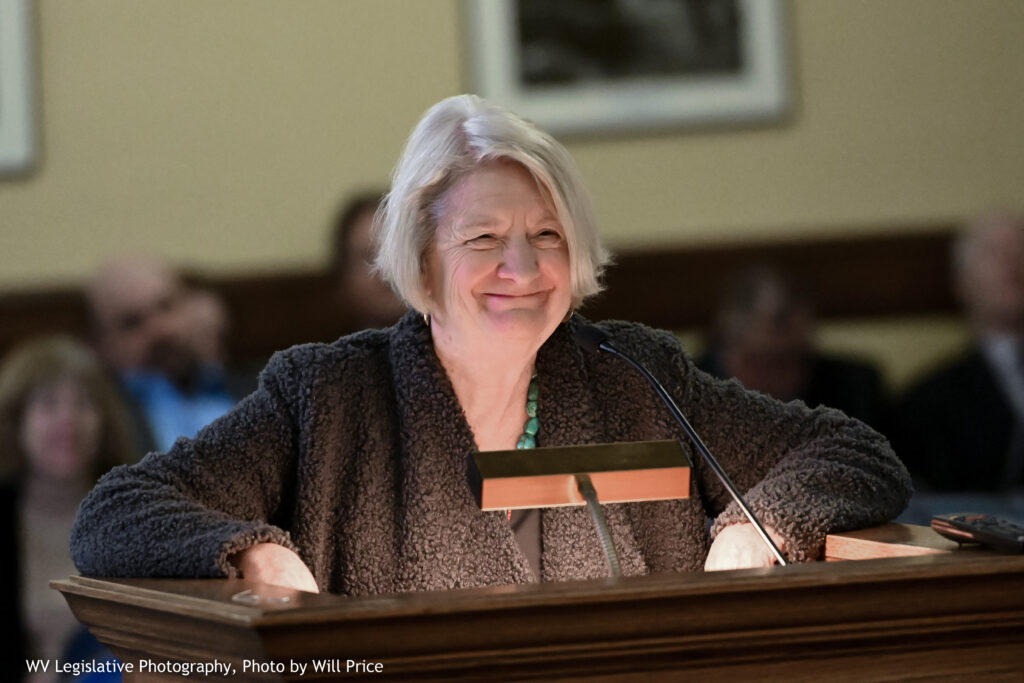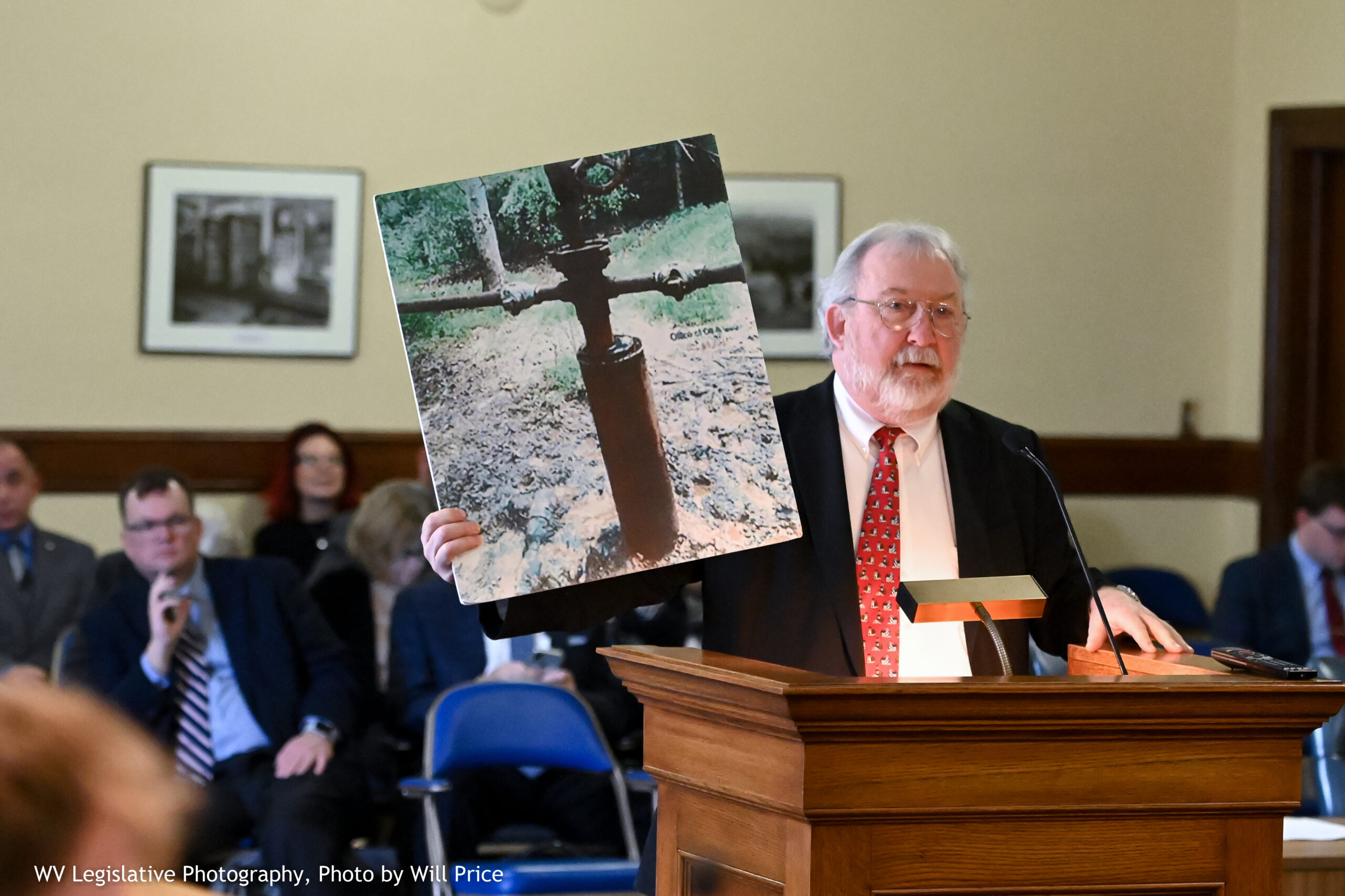MORGANTOWN — The Senate energy Committee on Tuesday passed a bill to scale back last year’s severance tax break for steam coal. Discussion revealed it would help five or six small producers at the expense of Murray Energy, which operates five local mines and is the largest privately owned coal company in the nation.
The committee also recycled a couple natural gas-related bills from last year, hoping for better outcomes this time.
The coal bill is SB 731. Last year, through HB 3142, the Legislature aimed to help the ailing steam/thermal coal industry by cutting the severance tax on steam coal from 5% to 3% across three years.
This cut, however, made a larger-than-expected hit on severance tax collections. So SB 731 limits the tax break to the first 6 million tons per year for each operator.
Chris Hamilton, with the West Virginia Coal Association, said the association opposes the bill. HB 342 is just in its first year of the phase-down. “It has made a difference in the thermal coal industry,” which has seen losses as coal-fired plants are scaled back and retired.
With the tax cut, he said, the industry has seen some increased sales in markets where the higher price locked it out.

But Sen. Chandler Swope, R-Mercer, asked Hamilton how many companies exceed that 6 million ton limit. Hamilton said there are five or six companies that produce more than 1 million tons, but only one that tops 6 million.
And that producer is in the midst of recovering from bankruptcy, he said. “It would be very detrimental to that producer,” whose sales represent one third of the state’s total output of steam and metallurgical coal combined.
Hamilton didn’t name the company but in answer to a question, committee chair Randy Smith, R-Tucker and a miner, did: Murray.
Smith said Murray’s bankruptcy has reduced its debt, allowing it to flood the market with cheap steam coal. That has reduced the state’s severance tax revenue and put some small vendors out of business or reduced their sales.
“The state is losing all the way around,” he said.
Sen. Doug Facemire, D-Braxton, framed the issue in a question to Smith: “So in your opinion, we’re helping the big guy at the expense of the smaller guys” under HB 3142.
Smith admitted that Murray employs a lot of people but acknowledged Facemire’s point.
There was no further discussion and the committee unanimously passed the bill and sent it to Finance.
Natural gas bills
HB 4661 is a revival of last year’s HB 2661 and came over from the House last week.
It is intended to help keep natural gas supplies flowing to communities served by old vertical wells that are producing little gas or are uneconomical to run. It allows a gas utility to petition the Public Service Commission to offer incentives to gas producers to increase well production or drill new wells for areas lacking dependable, low-cost supplies of natural gas.
If the options of increasing production or drilling news wells fail, the bill allows the utility to convert its customers to another form of energy — liquid natural gas, propane or electricity for instance — and recoup the costs of conversion from across its entire customer base.
Last year’s bill passed both houses but got vetoed. Public Service Commission Commissioner Charlotte Lane told the committee that some tweaks added to HB 4661 make it better and the PSC supports it.
The new version, she said, allows the PSC more leeway to offer incentives for reworking old wells, and it allows utilities to recover costs if the conditions are reasonable and meet PSC criteria. It provides a way to keep customers supplied who are in danger of losing service.
“This is a much better bill than last year’s bill,” she said.
It passed and goes to the full Senate.
SB 120 is one of several bills aimed at capping non-producing, abandoned and orphaned gas wells. It passed Senate Energy last year then got amended to death.
It requires that a bond posted for a specific well be used to cap or mitigate problems for that specific well under certain conditions.
Under current law, when a bond is forfeited the money goes to the Department of Environmental Protection’s well capping fund. DEP has a priority list of wells to be capped and draws form the pool of money to address wells in order.
West Virginia Surface Owners Rights Organization co-founder Dave McMahon has pushed for the bill and told the committee how it originated. He represents a client who has a nonproducing, unplugged well on his land. The DEP didn’t require bond forfeiture so the owner sued DEP to force it.
The well is 85th on the DEP’s list, he said, but that’s where the forfeiture money should go.
He also described a bigger problem. A producer pays a blanket $50,000 bond for all of its conventional wells, no matter how many. But the average cost to cap a well is about $65,000 to $85,000.
In this case, he said, the driller doesn’t own many wells so the bond money might cover capping it.
SB 120 passed unanimously and goes to Judiciary.
Tweet David Beard @dbeardtdp Email dbeard@dominionpost.com




